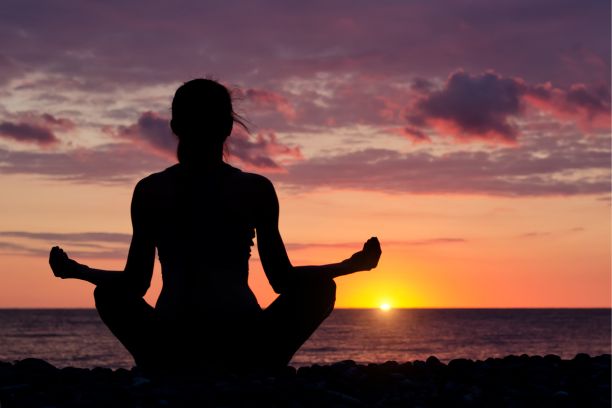
There are many misconceptions about the word meditation. Many people think that meditation means concentration on a certain point, object, or mantra chanting. However, meditation is not concentration. In concentration, there is duality—one is concentrating, and the other is the object. Meditation, on the other hand, is about oneness, with no division between inner and outer. Meditation means total awareness, being fully present in the moment—no past, no future.
Meditation is an extremely personal and spiritual experience. The purpose of meditation is to channel our awareness in a positive direction. It is not about forcing the mind to focus but about allowing it to settle into a state of natural awareness. In Hindi, meditation is called "Dhyan", which translates to awareness in English. Thus, meditation is about being aware, here and now.
Meditation is an ultimate need of the modern era. With the expansion of media and technology, the world has become overwhelming. Everything we see, hear, or watch gets stored in our minds, often without our conscious awareness. Our minds are flooded with thoughts and a constant traffic of information, leaving us feeling overwhelmed and out of control. Meditation is a process to cleanse the mind, throwing out what is not needed and helping us regain mastery over our thoughts and emotions.
Meditation is often described as a state of non-doing or non-action. However, techniques are essential because humans are conditioned to act in specific ways. Even simple actions like eating, laughing, or walking follow certain patterns. Techniques are designed to help us transition into a state of deep relaxation, where we can experience the true essence of meditation—a state of no action.
Techniques such as Gibberish, dancing, beating a pillow, or catharsis are particularly useful for the modern mind. They help release suppressed emotions, anxieties, and complexes, making you feel lighter and more aware. These techniques sharpen your awareness and prepare you for deeper meditation.
It is not necessary to practice many techniques at once. Doing so can lead to confusion and contradiction, causing pain or frustration. Instead, choose one or a maximum of two techniques that resonate with you and stick to them. Repetition of a suitable technique will take you deeper into meditation.
Meditation is not just fun or relaxation; it can sometimes be dangerous if practiced incorrectly, as it involves working with the subtle mechanisms of the mind. Therefore, it is crucial to seek guidance from a reputable Meditation Centre, especially in a city like Delhi, where proper training and knowledge are essential. Never try to invent your own techniques without proper understanding.
The benefits of meditation are vast and transformative. They include:
Meditation is not just about concentration; it is about awareness and being fully present in the moment. It is a powerful tool for cleansing the mind, regaining control over your thoughts, and achieving emotional, mental, and physical well-being. If you are new to meditation, seek guidance from a trusted Meditation Centre in Delhi to ensure you practice correctly and safely. Remember, meditation is a journey, not a destination—embrace it with patience and consistency.

Aritra Meditation offers a serene path to inner peace and mindfulness. Rooted in ancient traditions yet tailored for modern life, it fosters mental clarity, reduces stress, and enhances well-being. Through guided practices, deep breathing, and mindful awareness, individuals can cultivate balance and harmony.